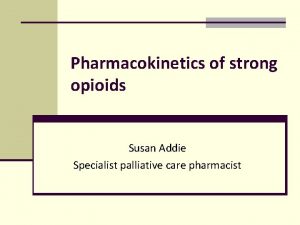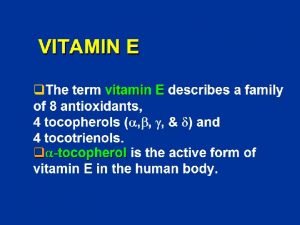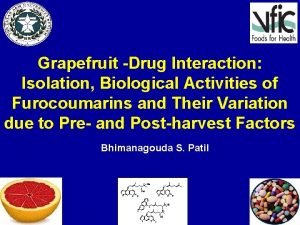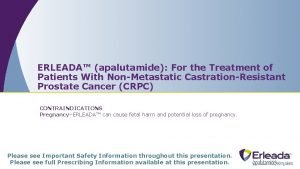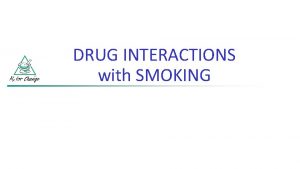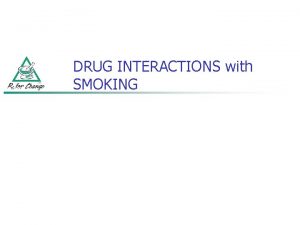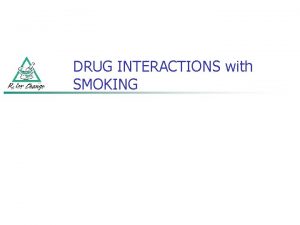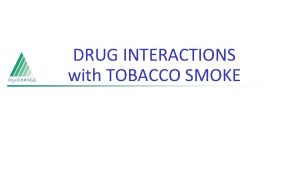PSYCHIATRIC MEDICATION INTERACTIONS with SMOKING PHARMACOKINETIC DRUG INTERACTIONS





- Slides: 5

PSYCHIATRIC MEDICATION INTERACTIONS with SMOKING

PHARMACOKINETIC DRUG INTERACTIONS with SMOKING Drugs that may have a decreased effect due to induction of CYP 1 A 2: n Caffeine n n Clozapine (Clozaril™) n n Fluvoxamine (Luvox™) n Haloperidol n Olanzapine (Zyprexa™) n (Haldol™) Phenothiazines (Thorazine, Trilafon, Prolixin, etc. ) n n Propanolol Tertiary TCAs / cyclobenzaprine (Flexaril™) Thiothixene (Navane™) Other medications: estradiol, mexiletene, naproxen, phenacetin, riluzole, ropinirole, tacrine, theophyline, verapamil, r-warfarin (less active), zolmitriptan HANDOUT Smoking cessation will reverse these effects.

GOOD PSYCHIATRIC CARE ≠ TOBACCO It is antithetical to provide patients with cigarettes as a form of reinforcement for taking their psychiatric medications TOBACCO CESSATION can be a cost effective component of MENTAL HEALTH TREATMENT

CASE REPORTS of MEDICATION INTOXICATION FOLLOWING CESSATION n n Patients treated with CYP 1 A 2 substrate antipsychotics should regularly be monitored with regard to their smoking consumption in order to adjust doses in cases of a reduction or increase in smoking Tobacco and cannabis smoking cessation can lead to intoxication with clozapine or olanzapine n Zullino, D. F. et al. (2002) International Clinical Psychopharmacology

DRUG INTERACTIONS with SMOKING: SUMMARY Clinicians should be aware of their patients’ smoking status: n n n Clinically significant interactions result not from nicotine but from the combustion products of tobacco smoke. Constituents in tobacco smoke (e. g. , polycyclic aromatic hydrocarbons; PAHs) may enhance the metabolism of other drugs, resulting in a reduced pharmacologic response. Smoking might adversely affect the clinical response to the treatment of a wide variety of conditions.


